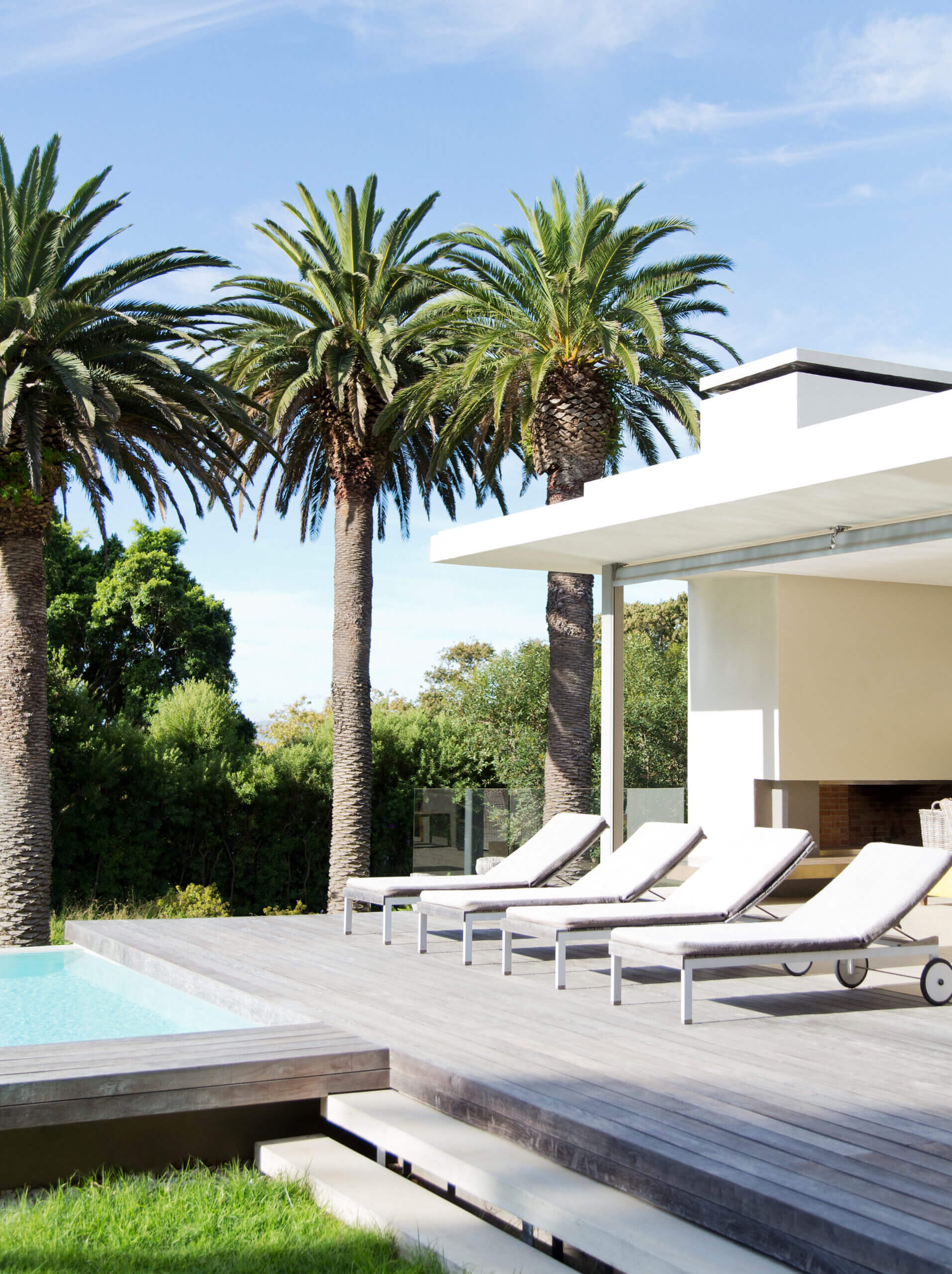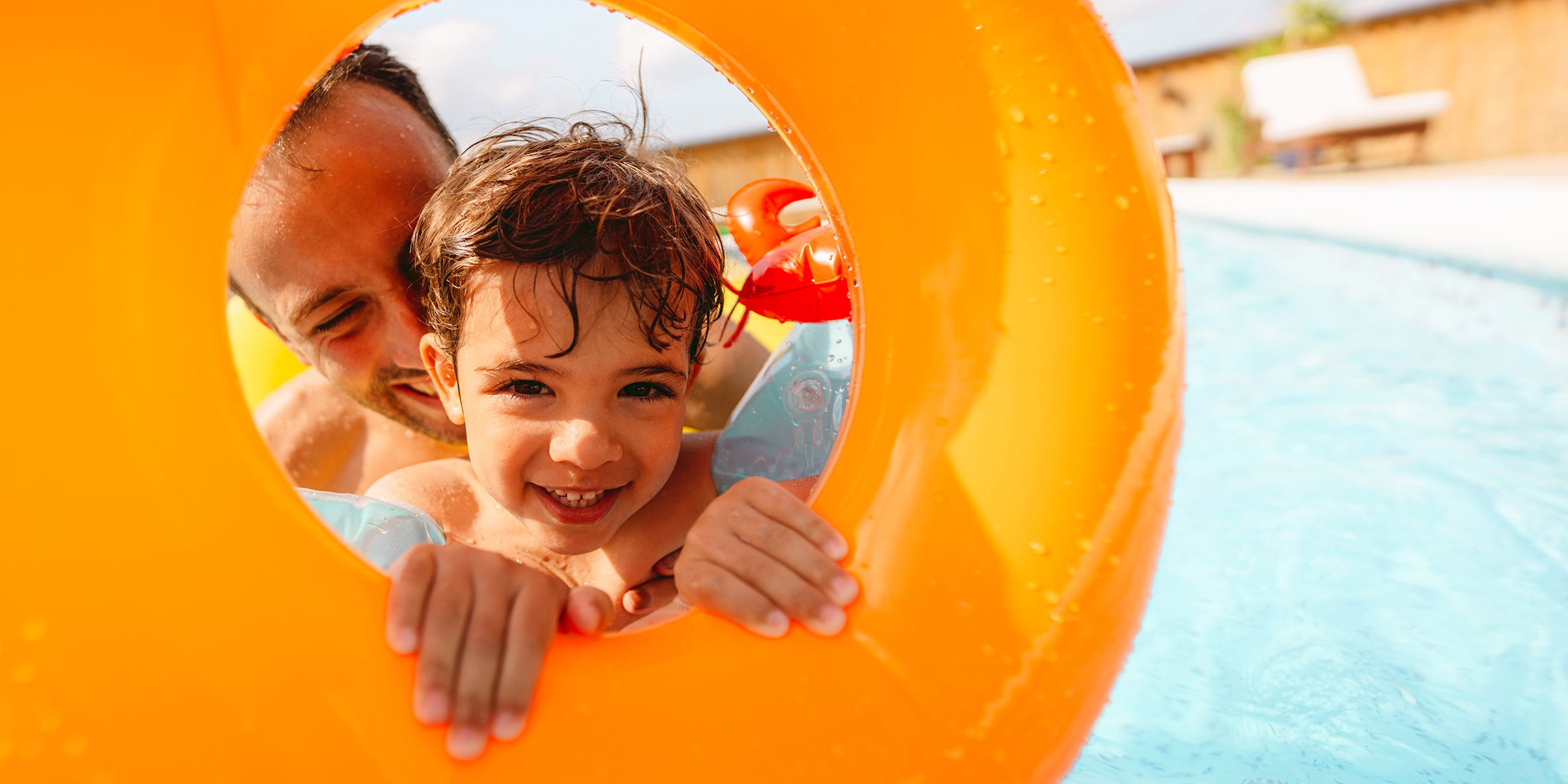Correctly closing your pool is crucial to maintaining its longevity and ensuring it’s in top condition for the next swimming season. You’ll need to use a variety of chemicals to close your pool in preparation for winter or an extended period of inactivity. These chemicals will sanitise your pool, protect it from the elements, and balance the water chemistry.
What chemicals are needed to close a pool? This guide will teach you about the chemicals you need and how and when to use them.

Do You Have the Pool Chemicals You Need?
Here’s a checklist of the chemicals you’ll need to close your pool properly and when you should use them. Remember to follow the instructions on each chemical’s label carefully and wear appropriate protective gear when handling them.
- Alkalinity increaser. You’ll need to balance your water’s alkalinity, pH, and calcium hardness levels before shocking it for closing. To adjust your pool’s alkalinity to between 80-100 ppm (parts per million), use Hy-Clor Alkalinity Increaser.
- Balancer chemicals. Balance your pool’s pH levels to between 7.2-7.6. If the readings are off, use Hy-Clor pH Decreaser (dry acid) to lower the pH or Hy-Clor pH Increaser (soda ash) to raise it.
- Calcium increaser. Raise the calcium hardness of your water using Hy-Clor Calcium Increaser to a level of 200-400 ppm.
- Shock treatment. You’ll need to shock your pool with a high dosage of chlorine shock (link to Super Shock) four or five days before closing it to let the chlorine dissipate and do its job. We recommend shocking at night to allow the shock chlorine to work without interference from the sun’s UV rays.
- Algaecide. Use this preventative chemical on the day you shut down your pool. Link to Hy-Clor LongLife Algaecide
- Winter pool cover. While not a chemical, a winter pool cover can protect your pool from the elements during the off-season!
Using these chemicals will help you correctly close your pool for the off-season. If you’re a new pool owner, you may also feel a little overwhelmed by the thought of maintaining your pool during the swimming season.
But don’t worry; with the right chemicals and knowledge, keeping your pool sparkling clean and safe for your family and friends to swim in is easy! Read our handy Pool Chemical Guide to learn about the chemicals needed to maintain your pool and how to use them.
The Chemicals You’ll Need To Close a Chlorine Pool
You’ll need the following chemicals to close your chlorine pool. We’ve also explained why you need them and how to use them.
-
- Alkalinity increaser. Alkalinity is important for maintaining proper pH levels in your pool. If the alkalinity is too low, the pH levels can become unstable, leading to the corrosion of metal parts and reduced effectiveness of sanitisers. On the other hand, if the alkalinity is too high, it can make it difficult to adjust pH levels, resulting in cloudy water.Slowly pour the alkalinity increaser directly into your pool water near the pool’s edge. Run your pool pump and filter system for several hours to circulate the water and distribute the alkalinity increaser evenly throughout your pool.After a few hours, test the alkalinity again. You’re aiming for a level of 80-100 ppm.
- pH increaser or decreaser. To ensure your pool water remains clear and balanced, add a pH increaser if the pH level is too low (below 7.2) or a pH decreaser if the pH level is too high (above 7.6).After adding the pH balancer to your pool, allow the water to circulate for several hours before retesting and adjusting if necessary.
- Calcium increaser. This chemical balances the calcium levels in your pool water, preventing damage to your pool’s surfaces and equipment.Add the recommended amount of calcium chloride to your pool water while the pump runs. When tested, the calcium hardness level should be between 200-400 ppm.
- Shock treatment. This treatment will help kill any remaining bacteria or algae in the water.To use shock in your pool, dilute the recommended dosage of shock powder in a bucket of water and pour it around your pool’s perimeter while the pump and filter run. Allow the shock to circulate for several hours before adding other chemicals to the water.
- Algaecide. Use algaecide as a preventative measure, so your pool doesn’t develop algae while it’s closed.Follow the instructions on the algaecide product and add the recommended amount directly to your pool while the pump is running.
You might wonder, what chemicals do I need to winterise my above-ground pool? The chemicals needed for winterising an above-ground pool are the same as those for in-ground pools. However, the necessary quantities may vary depending on your pool size and specific needs.
Using the proper chemicals and following the instructions on each product label ensures that your chlorine pool will be in good condition and ready for use when the next swimming season arrives.


The Chemicals You’ll Need To Close a Saltwater Pool
Closing a saltwater pool is very similar to closing a chlorine pool, with a few exceptions.
Read on for more information on why you need the following chemicals to close your saltwater pool and how to use them.
-
-
- Alkalinity increaser. Alkalinity is important for maintaining proper pH levels in your pool.Slowly pour the alkalinity increaser directly into your pool water near the pool’s edge. Run your pool pump and filter system for several hours to circulate the water and distribute the alkalinity increaser evenly throughout your pool.After a few hours, test the alkalinity levels again to check they reach the desired level of between 80-100 ppm.
- pH increaser or decreaser. For clear and balanced water, add a pH increaser if your pool’s pH level is too low (below 7.2) or a pH decreaser if the pH level is too high (above 7.6).After adding the pH balancer to your pool, allow the water to circulate for several hours before retesting and adjusting if necessary.
- Calcium increaser. This chemical balances the calcium levels in your pool water, preventing damage to your pool’s surfaces and equipment. The calcium hardness level should be between 200-400 ppm.Add the recommended amount of calcium chloride to your pool water while the pump runs.
- Shock treatment. This treatment will help kill any remaining bacteria or algae in the water.Saltwater pools require a different type of shock than chlorine pools, as the salt can break down the chlorine in the shock. Hy-Clor Salt Pool Shock is specifically designed to boost chlorine levels in salt pools. It has an easy-to-use formula that won’t affect your pool’s chemical balance or cloud your water.Follow the dosage and application instructions on our product. Allow the shock to circulate for several hours before adding other pool chemicals to the water.
- Algaecide. Use algaecide to ensure your pool doesn’t develop algae while it’s closed.Follow the instructions on the algaecide product and add the recommended amount directly to your pool while the pump is running
-
When closing a saltwater pool, it’s also important to maintain the proper salt level for the longevity and efficiency of your salt cell.
Here are some steps to manage salt levels when closing your saltwater pool.
-
-
- Test the salt level. Use a saltwater test kit to check the current salt level in your pool. Hy-Clor Salt Test Strips. The ideal level is between 2700 and 4500 ppm.
- Add salt if necessary. If the salt level is below 2700 ppm, add the appropriate amount of pool salt pool according to the manufacturer’s instructions. Be sure to distribute the salt evenly throughout the water. We recommend maintaining salt levels on the lower end of the normal range to avoid staining your pool due to salt reacting with contaminants over the winter months.
- Dilute your pool water if necessary. If your salt level is above 4500 ppm, you’ll need to dilute the pool water by partially draining and refilling your pool with fresh water. Repeat this process until the salt level is within the recommended range.
- Run your pool pump. After adjusting the salt level, run your pool pump for several hours, so the salt distributes evenly throughout your pool.
- Turn off your saltwater generator. Once the salt level is balanced, turn off your saltwater generator and remove the salt cell from the plumbing. Clean and store the salt cell according to the manufacturer’s instructions.
-
Using the proper chemicals and following the instructions on each product label ensures that your saltwater pool will be in top condition while it’s closed.
FAQs About Pool-Closing Chemicals
Yes, it’s recommended that you shock your pool a few days before closing it to help prevent algae growth and keep the water clean.
You should add algaecide when closing your pool to help prevent algae growth and make it easier to reopen your pool. We recommend using a longlife algaecide on the day you close your pool.
Yes, you should super chlorinate your pool to help prevent algae growth and ensure the water remains clean and clear while closed. We recommend super chlorinating your pool a few days before closing it to give the chemicals time to circulate and mix with the water.
Super chlorination and shock are often confused as they’re very similar. While both increase the amount of free chlorine in your pool, they are technically different.
When you shock your pool, the chlorine level is raised very quickly to a high level strong enough to kill harmful bacteria and other microorganisms. This high level of chlorine is called breakpoint chlorination.
On the other hand, super chlorination involves adding a large amount of chlorine to your pool in a short time. This process raises the chlorine level high enough to kill contaminants in your pool water but doesn’t reach the level of breakpoint chlorination.
An average 3.7 by 7.3 meter in-ground backyard pool holds about 45,000 litres of water. As a rough estimate, you would need 1kg of shock for every 45 000 litres of water.
Our Hy-Clor Super Shock is available in 500g, 2 kg, 4 kg, and 10 kg. So for a 45,000 litre pool.
The exact number of bags of shock you need to winterise your pool depends on the size of your pool and the current condition of your pool water.
Find the Chemicals You Need
Are pool winterising chemicals necessary? Yes! If you decide to close your pool during the cold season, it’s vital to apply the correct chemicals to protect it from damage.
What chemicals are needed to close a pool? Pool chemicals that maintain your pool’s pH balance, eliminate bacteria or algae and prevent staining and scaling of plumbing and equipment are necessary.
Do you need to purchase any of these chemicals to close your pool?
Speak to the pool chemical professionals here at Hy-Clor by contacting us via our online form. Alternatively, please visit your nearest Bunnings Warehouse for our full range of products.
Start preparing your pool for winter now, so it’s ready to go when the hot weather returns!




